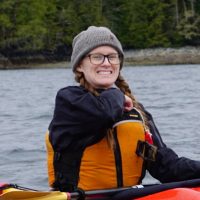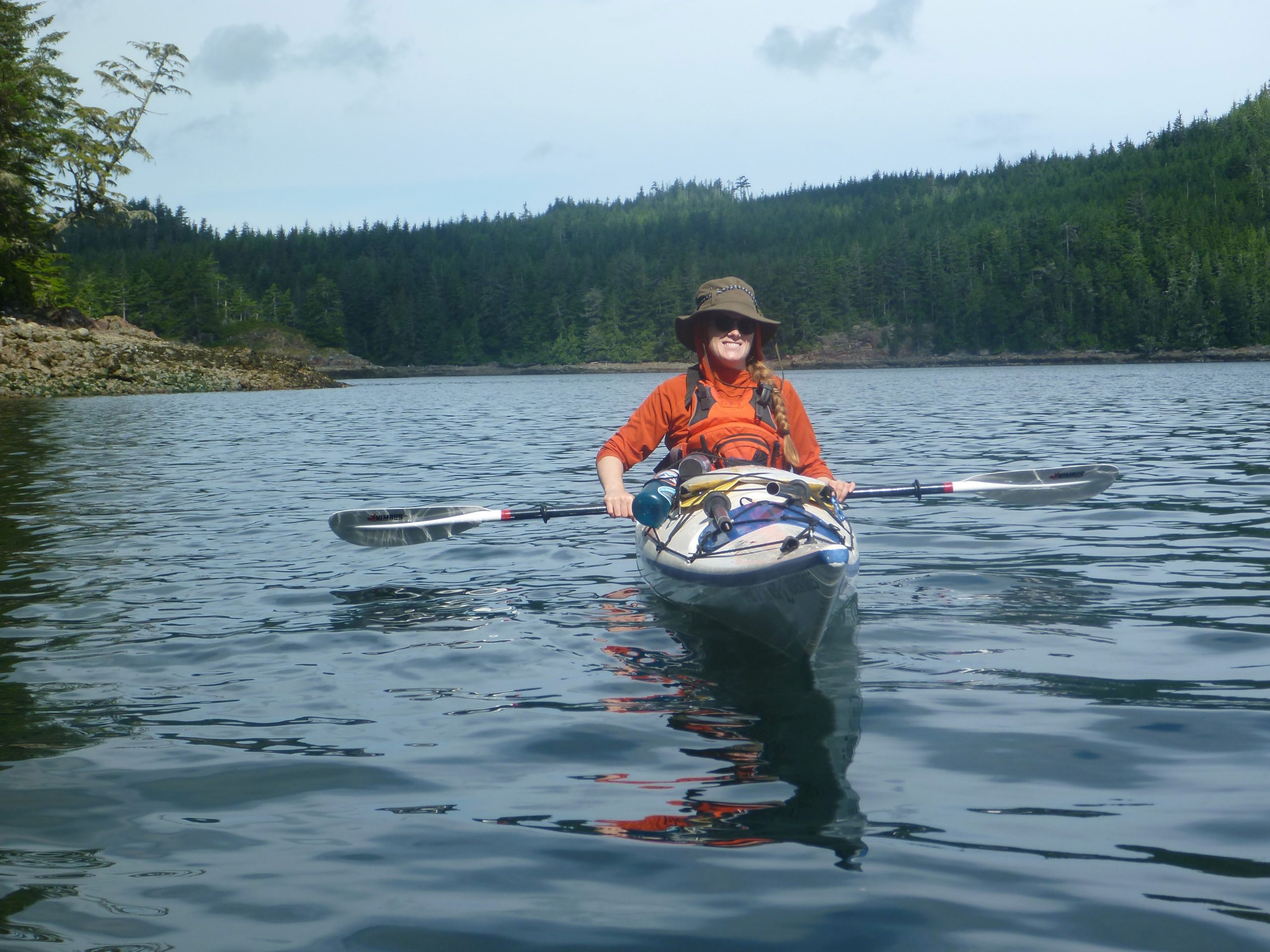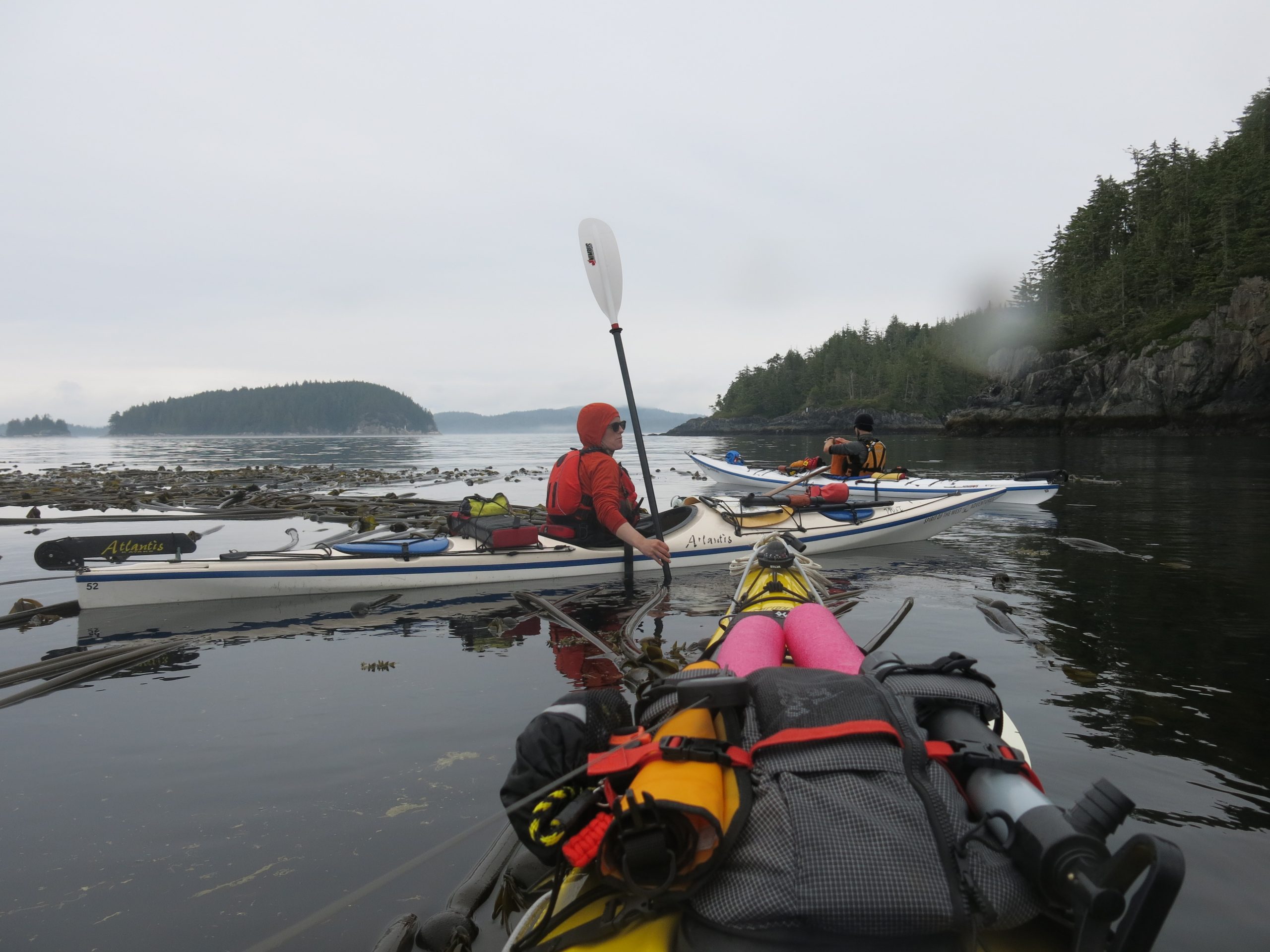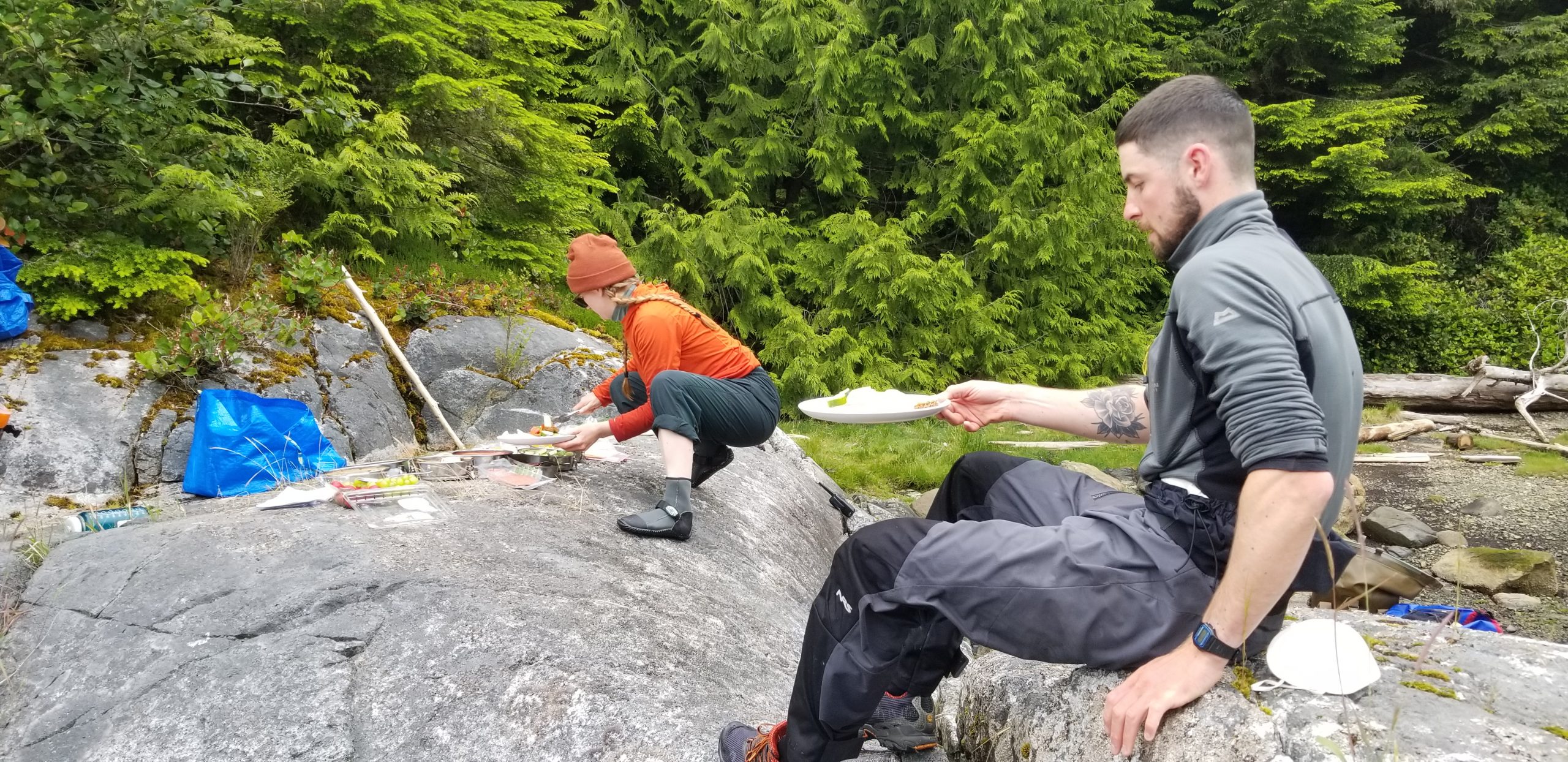
Cait Woolner
Sea Kayak Guide
| Degrees: | BA in Biology and a Minor in Neuroscience |
When did you graduate from Carleton, and what program were you in?
I graduated from Carleton in 2016 with a BA in Biology and a Minor in Neuroscience.
Where do you work now, what is your position title, and when did you start?
I work at Spirit of the West Adventures as a Sea Kayak Guide. I started there in May 2022.
Can you give a general description of your position?
As a kayak guide I help lead paddling tours around the coastal waters of BC including Johnstone Strait, the Broughton Marine Archipelago, Desolation Sound and the Discovery Islands. I teach and improve the paddling skills and campcraft of our guests, share insights and knowledge of the local area (including flora, fauna, and history), prepare and cook food for all our trips, and keep our groups safe on and off the water. Guides require a lot of formal training and a lot of personal practice, especially when it comes to things like reading weather and water conditions. Becoming a sea kayak guide is committing to a life of learning in some of the most beautiful places in the world.

What does an average day for you involve?
I wake up early to check the marine and local forecasts and decide on a course of action for the day. I prepare hot drinks and breakfast for our guests, tear down camp, and hop on the water for a few hours of paddling. We may explore intertidal areas, observe some megafauna like whales, or visit an indigenous cultural site. Lunch is usually on a lovely beach, where we’ll relax and discuss some of the creatures we saw and how they contribute to the local ecosystem. After lunch we’ll paddle a few hours more before setting up camp again (or returning to a basecamp). After putting the boats away, everyone can relax while the guides get dinner ready. Evenings are a mixed bag. Sometimes we might just relax, play games or just enjoy the sounds and sights of the ocean. There is also opportunity for in depth discussions and learning about navigation, paddling, local indigenous communities, and the life cycles of the creatures and geography of the Pacific Northwest. Once everyone is fed and watered and things are tidied up, the guides can take a load off before going to bed and doing it all over again!

As a student, were there experiences or opportunities that helped you get such a position. If so which ones?
Studying the sciences at Carleton gave me an amazing knowledge base of ecosystem dynamics and evolutionary history. I particularly gained a lot from my second year animal anatomy course and environmental sciences courses throughout. I also feel that the act of studying itself has been invaluable to my guiding. Studying for my exams not only included learning concepts, but being able to explain them to my friends that weren’t in the sciences. A huge part of what I do now is explain ecology to people from all backgrounds, ensuring that my knowledge is digestible and enjoyable for all of my guests.

Do you have any advice for students interested in pursuing a similar path?
There are a lot of certifications needed for outdoor work or guiding, it’s great to start just taking the ones you can. The time and financial commitments are a lot less than full or part-time courses at formal institutions, and often they can be subsidized by different grants. I recommend starting with your 40 hours Wilderness First Aid course, and, if you’re interested in sea kayaking in particular, the Assistant Overnight Guide course is an amazing experience. I would actually recommend it to anyone who loves learning, even if they have no interest in becoming a guide.